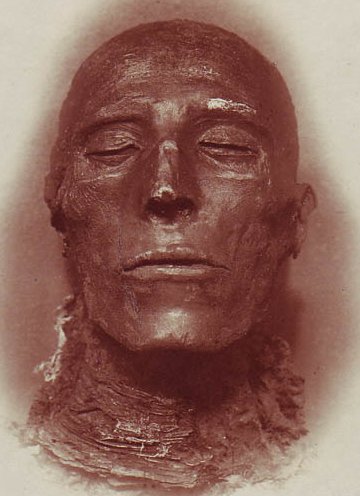Sunday, March 23, 2014
Blogging Sax Rohmer’s The Island of Fu Manchu, Part Four
Sax Rohmer’s Fu Manchu and the Panama Canal was first serialized in Liberty Magazine from November 16, 1940 to February 1, 1941. It was published in book form as The Island of Fu Manchu by Doubleday in the US and Cassell in the UK in 1941. The book serves as a direct follow-up to Rohmer’s 1939 bestseller, The Drums of Fu Manchu and is again narrated by Fleet Street journalist, Bart Kerrigan.
The final quarter of the novel sees Rohmer really deliver the goods with Kerrigan and Sir Denis Nayland Smith successfully infiltrating the Haitian voodoo ceremony of Queen Mamaloi. While similar scenes had occurred in the past at various clandestine gatherings of the Si-Fan, the sequence most closely resembles the gathering of the followers of El Mahdi in 1932’s The Mask of Fu Manchu. Rohmer’s mastery of the art of suspense writing makes the reader believe the heroes are in genuine danger. While this is no small feat considering the number of times Rohmer had penned similar scenes in the past, part of the success here is down to the climactic revelation of the voodoo Queen Mamaloi.
TO CONTINUE READING THIS ARTICLE, PLEASE VISIT THE BLACK GATE ON FRIDAY.
Wednesday, March 19, 2014
Blogging Sax Rohmer’s The Island of Fu Manchu, Part Three
Sax Rohmer’s Fu Manchu and the Panama Canal was first serialized in Liberty Magazine from November 16, 1940 to February 1, 1941. It was published in book form as The Island of Fu Manchu by Doubleday in the US and Cassell in the UK in 1941. The book serves as a direct follow-up to Rohmer’s 1939 bestseller, The Drums of Fu Manchu and is again narrated by Fleet Street journalist, Bart Kerrigan.
The second half of the book gets underway with Sir Denis Nayland Smith, Sir Lionel Barton, Bart Kerrigan, and the local police chief holding a council of war to discuss the enigmatic Lou Cabot. A meeting is arranged by Kerrigan and Sir Denis with the dancer Flammario who is Cabot’s former lover. Cabot is involved with the Si-Fan and has run afoul of Dr. Fu Manchu. Both the Devil Doctor and Flammario wish to see Cabot dead.
Flammario is clearly meant to recall Zarmi from the third Fu Manchu novel, but she is more bitter than she is seductive. She leads Smith and Kerrigan to Cabot’s apartment. Unfortunately, the Si-Fan had the advantage and arrived before them. The place is in a shambles and they find Cabot’s hideosuly mangled corpse. Kerrigan spies Ardatha’s ring on a shelf and knows that his lost love has fallen back into the Si-Fan’s clutches.
TO CONTINUE READING THIS ARTICLE, PLEASE VISIT THE BLACK GATE ON FRIDAY.
Labels:
Island of Fu Manchu,
pulp fiction,
Sax Rohmer,
thriller,
Yellow Peril
Friday, March 7, 2014
Blogging Sax Rohmer’s The Island of Fu Manchu, Part Two
Sax Rohmer’s Fu Manchu and the Panama Canal was first serialized in Liberty Magazine from November 16, 1940 to February 1, 1941. It was published in book form as The Island of Fu Manchu by Doubleday in the US and Cassell in the UK in 1941.
The second quarter of the novel begins with Ardatha phoning Kerrigan before he leaves for their mission abroad. She shares Fu Manchu’s itinerary with him in the hopes he will arrange for the return of Peko, Fu Manchu’s pet marmoset. After hanging up, a confused Kerrigan learns Sir Lionel abducted the animal while being liberated from the clinic in Regent Park. Sir Denis explains both he and Barton understand Peko’s value as a hostage.
TO CONTINUE READING THIS ARTICLE, PLEASE VISIT THE BLACK GATE NEXT FRIDAY.
Labels:
Island of Fu Manchu,
pulp fiction,
Sax Rohmer,
thriller,
Titan Books,
Yellow Peril
Wednesday, March 5, 2014
Blogging Sax Rohmer’s The Island of Fu Manchu, Part One
Sax Rohmer’s Fu Manchu and the Panama Canal was first serialized in Liberty Magazine from November 16, 1940 to February 1, 1941. It was published in book form as The Island of Fu Manchu by Doubleday in the US and Cassell in the UK in 1941. The book serves as a direct follow-up to Rohmer’s 1939 bestseller, The Drums of Fu Manchu and is again narrated by Fleet Street journalist, Bart Kerrigan.
The previous book in the series was published just prior to the outbreak of the Second World War in Europe. Rohmer chose to portray characters such as Hitler and Mussolini under thinly disguised aliases. More critically, he chose to have these threats to world peace removed by the conclusion of the book as he naively believed a Second World War would be avoided at all costs. Over a year into the war, Rohmer had to address these issues for his readers. His excuse was a brilliant one. The prior narrative had been censored by the Home Office. Bart Kerrigan was forced to alter names and events. Hitler and Mussolini yet lived.
Interestingly, Rohmer chose to pick up the story some months after the last title and reflect changes in the lives of his characters. The Si-Fan has fallen under an unnamed pro-Fascist president who counts Fu Manchu’s duplicitous daughter among his closest allies. The Devil Doctor himself has fallen from grace within the Si-Fan as he opposes fascism at all costs. This rift threatens to tear the secret society apart as much as the war was doing the same to governments around the world.
TO CONTINUE READING THIS ARTICLE, PLEASE VISIT THE BLACK GATE ON FRIDAY.
Labels:
Island of Fu Manchu,
pulp fiction,
Sax Rohmer,
thriller,
Yellow Peril
Subscribe to:
Posts (Atom)


.jpg)